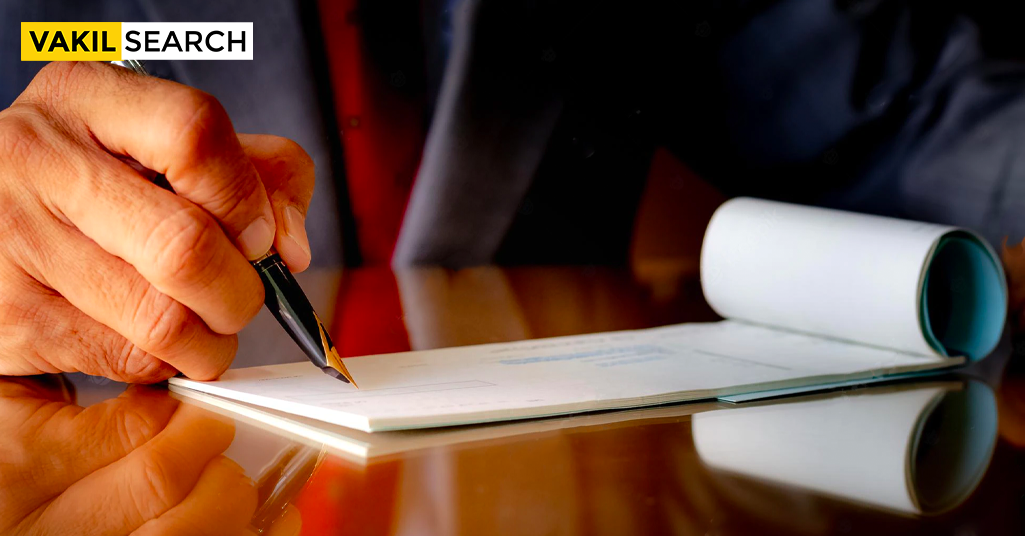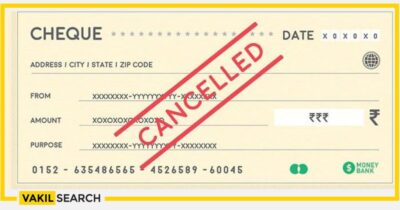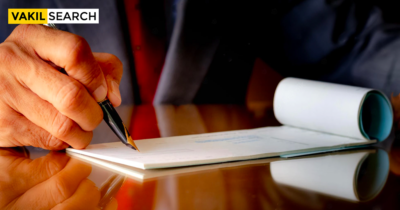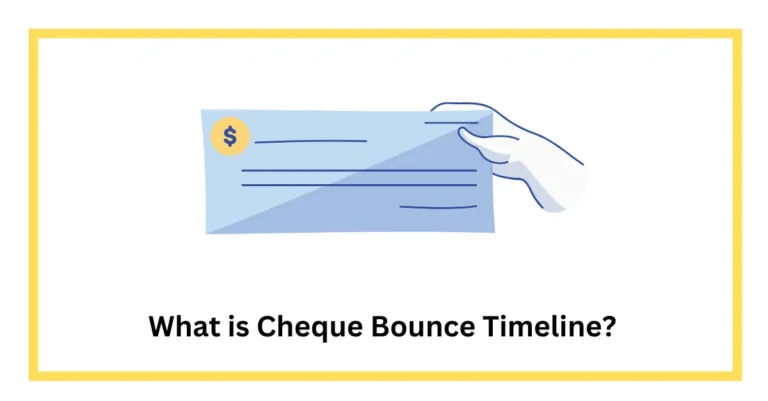With the dawn of digitalization, payment of bills and transferring money has become nothing less than a walk in the park. Yet, it has not replaced the issuance of cheques as it still remains the most preferred mode of money transfer. But, when the cheque bounces, the parties concerned will have to face the consequences.
Cheques are one of the most convenient and widely used negotiable instruments used for transferring money from one account to another. However, in reality, the process is not as simple as it is depicted to be. The cheque that is deposited does not always get encashed. There are various reasons behind this such as the expiry of the cheque or insufficiency of funds. Under such circumstances, it is said that the cheque is dishonored or bounced. This results in dire consequences such as fines and penalties being imposed or even might result in imprisonment on the issuer. Navigate financial waters smoothly with our transparent and competitive Cheque Return Charges.
What are Cheque Return Charges?
Cheque Return Charges are fees levied by banks when a cheque you issue is returned unpaid for various reasons. These charges compensate the bank’s administrative costs and inconvenience caused by handling a bounced cheque.
Why are Cheque Return Charges Charged?
- Insufficient funds: This is the most common reason. If you don’t have enough money in your account to cover the cheque amount, it will be returned unpaid, and you’ll be charged.
- Signature mismatch: If your signature on the cheque doesn’t match the one on file with the bank, it could be returned.
- Account closed: If the account the cheque was drawn on is closed, it will be returned.
- Incorrect information: Errors like wrong date, payee name, or account number can cause the cheque to be returned.
- Post-dated cheque presented early: A cheque issued for a future date cannot be cashed before that date.
- Stop payment instruction: If you inform your bank to stop payment on a cheque you previously issued, it will be returned.
How Much do Cheque Return Charges Cost?
The amount of these charges varies depending on:
- Your bank: Different banks have different charge structures.
- Reason for return: Some banks charge more for insufficient funds than for other reasons.
- Cheque amount: Some banks charge a fixed fee, while others charge a percentage of the cheque amount.
In India, for example, charges can range from ₹50 to ₹750 per returned cheque, with higher fees for insufficient funds and repeated offences. Checking your bank’s specific fee structure is crucial to avoid surprises.
Note: Cheque return charges are separate from legal consequences. A bounced cheque can lead to legal action by the payee, including penalties and even imprisonment in some cases.
Charges Levied When a Cheque is Dishonored
A cheque is a written instrument wherein a commitment is made by the payer for a specific amount of money. When the bank does not transfer the requested amount from the payer’s account to the payee for some reason, the cheque is said to have bounced or dishonored. When a cheque is dishonored, the most natural cause of action that would arise is, the banks levying charges for the same.
A cheque may be returned for a variety of reasons as stated previously, the prevalent one being, the insufficiency of funds. There could also be other “light-weighted” reasons such as the signature on the cheque not matching the account holder’s signature or the numbers in the figure varying from the number written in words, erroneous account number, issuing disfigured or damaged cheques, etc.
In the case of insufficiency of funds, not only the defaulter but also the payee is penalized with the cheque return charges. This fee is called the NSF fee or Non-Sufficient Fund fee and is levied when the bank decides to dishonor the cheque. Banks are put to additional work when a cheque bounces and it is for this reason that both the cheque issuer (drawer) and the payee (one in whose favor the cheque is drawn) are penalized for such returned cheques. The drawee bank (where the drawer has an account) charges the drawer for the outward return cheque and the presenting bank where the cheque was deposited by the payee (where the payee has account) charges the payee for the inward return cheque. These charges thus inflicted vary across the banks and are dependent on the reasons and nature of the cheque bounce along with the type of account. It is important to note that these charges also attract GST.
The charges can be higher in premium accounts. Some banks have higher penalty charges for exceeding a certain number of misses in a period. The charges for the lack of sufficient funds in the account are applicable on payment through electronic funds transfer as well. A few banks do charge a small fee on cheques drawn on them if they are returned for technical reasons other than system or power failure. Others may not charge for cheques returned due to technical reasons.
Cheque return Charges of Banks
The cheque returns charges for some of the banks have been depicted below. The charges can be found by visiting the official website of the banks.
| Bank | Return Charges (GST Applicable) |
| State Bank of India |
· For Insufficieny of Fund in Account – ₹500 · Technical Mishaps – ₹150 |
| ICICI |
· Outward Cheque Return – ₹200 per instance · Inward Cheque Return- ₹500 per instance · Non-financial reasons – ₹50 |
| Axis Bank |
· Outward Cheque Return- ₹100 per cheque · Inward Cheque Return/ ECS Return – ₹750 per instance |
| Kotak Mahindra Bank |
· Cheques Deposited & Returned (Outward) – ₹100 per Cheque · Cheques Issued and Returned (Inward) &ECS returns – ₹500 per instance |
| HDFC Bank |
· Insufficiency of Funds: 1st Instance – ₹450 (Senior Citizen – ₹400) 2nd Instance – ₹500 (Senior Citizen – ₹450) 3rd Instance – ₹550 (Senior Citizen – ₹500) · Cheque Return Due to Fund Transfer – ₹350 (Senior Citizen – ₹315) · Cheque Return Due to Technical Reasons – ₹50 (Senior Citizen – ₹45) |
When an individual is on the receiving end of the bounced cheque, legal measures can be taken for recovering the dues. However, cheques that are deposited for the purposes of gifting cannot be contested.
Consequences of Cheque Bounce
When a cheque bounce ensues, the financial credit history of the issuer gets hit. Further, a single incident of cheque bounce is enough to affect one’s CIBIL (Credit Information Bureau India Limited) score, which is a numeric representation of one’s credit history. Shockingly, even the loans of the individual can get rejected. Therefore, to hold the position of the CIBIL score one needs to ensure that the cheques are never defiled and that the account possesses enough balance.
RBI (Reserve Bank of India) has also instructed the banks to lay a constraint on the issuance of cheques to customers who recurrently sign checks without sufficient balance in their account. In circumstances wherein a customer has opted for a loan in the bank and the EMI cheque bounces, the bank has the right to forward a legal notice to the defaulter and even deduct money from the defaulter’s active account.
Despite the growth in digitalisation, customers still prefer the usage of cheques due to the convenience and safety it offers in the transfer of amounts. A cheque can be drawn at any time, can be post-dated, and can even be traced if lost. In the case of cheques, payments can be stopped if necessary. Such advantages are not vested with other instruments. On the other hand, when the issuer is not mindful, cheques get bounced and dishonored and as a result, charges will be levied on the payer and the payee.
It is, therefore, always prudent to ensure that there are sufficient funds before issuing a cheque. It is also necessary that the details filled on the cheque are written legibly and should be ascertained to be free from errors. It might be a tough thing to be on the receiving end of a bounced cheque. Under such circumstances, it is always advisable to seek legal help. Should you find yourself at such tight corners, reaching out to Vakilsearch could help you ease your nerves. Our legal experts can handle the cheque bounce issue and would ensure that the dues are collected promptly and handed over to you. Remember!! At Vakilsearch, every legal problem has a quick solution!
FAQs on Cheque Return Charges
What is the reason for cheque return charges?
Cheque return charges are levied by banks when a cheque you issue is returned unpaid for various reasons. This compensates the bank for administrative costs and inconvenience caused by handling the bounced cheque. Common reasons include:
Insufficient funds.
Signature mismatch.
Closed account.
Incorrect information (date, payee, account number).
Post-dated cheque presented early.
Stop payment instructions.
How much is the cheque return charge?
The charge amount varies depending on the following:
Your bank: Check your bank's specific fee structure.
Reason for return: Some banks charge more for insufficient funds.
Cheque amount: Some have fixed fees, while others charge a percentage. For example, in India, charges can range from ₹50 to ₹750 per returned cheque, with higher fees for insufficient funds and repeated offences.
What is the penalty for returning a cheque?
Cheques bouncing primarily incur bank charges, not legal penalties. However, legal action by the payee can occur, involving penalties and even imprisonment in some cases.
What will happen if a cheque is returned?
The bank will inform you through a memo or statement. If it happens repeatedly, you'll owe the bank the cheque amount, charge fees, and possibly additional penalties.
What happens if a cheque bounces three times?
Multiple bounces can lead to:
Increased charges or fines from the bank.
Difficulty opening new bank accounts.
Negative credit report impacting loan applications.
Legal action by the payee. It's crucial to act quickly and clear the outstanding amount to avoid further consequences.
Who gets charged if a cheque bounces?
The account holder who issued the cheque is responsible for the charges and potential legal consequences.









